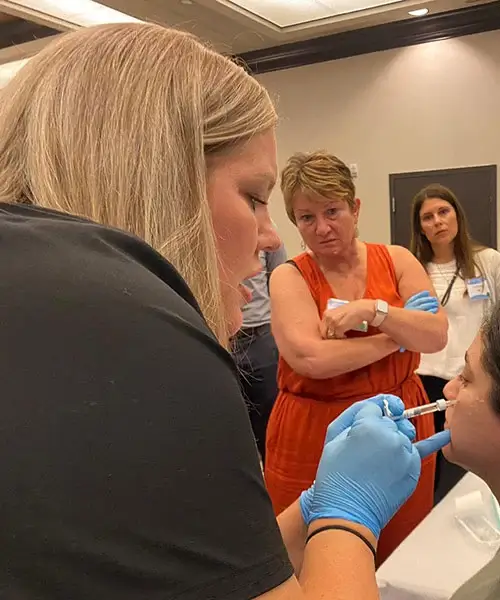Botox® vs. Jeuveau®: Understanding the Basics and Key Differences
By Dr. Stephen Cosentino
PRESIDENT OF EMPIRE MEDICAL TRAINING
Botox® is by far the most popular botulinum toxin treatment for cosmetic complaints, but it’s not the only one. Several botulinum toxin type A products have received FDA approval, including Dysport® and Xeomin®.
These Botox competitors have the same active ingredient as Botox, but they’re not identical formulations. And while they all have fewer FDA-approved indications than Botox, many providers prefer one Botox alternative or another in specific applications.
One newer alternative that’s often used for cosmetic purposes is Jeuveau®. Developed by Evolus, it’s approved for cosmetic injection treatments in certain areas of the face and neck.
If your provider recommends Jeuveau, you probably have questions about the differences between Botox and Jeuveau. Read on to learn more about them.
Botox vs. Jeuveau: Formulations & Indications
Botox and Jeuveau are both neuromodulator injections derived from botulinum toxin, one of the most powerful known neurotoxins. They have similar molecular weights and safety profiles. But there are some important differences between them.
Manufacturer
Botox is manufactured under license from Allergan, a global pharmaceutical company headquartered in Ireland. It’s manufactured at a facility in County Mayo, in the Republic of Ireland.
Jeuveau is manufactured under license from Evolus, a relatively small pharmaceutical company based in California. It’s manufactured at a facility in the Republic of Korea (South Korea).
Active Ingredient
The active ingredient in Botox is onabotulinumtoxinA. The active ingredient in Jeuveau is prabotulinumtoxinA. But both work on the nervous system in the same way, so there’s no practical difference between the two for the vast majority of patients and providers.
Indications
Botox has more than a dozen FDA-approved medical and cosmetic indications.
Botox Therapeutic is the formulation used for medical indications, such as treatment for blepharospasm and chronic migraine. Botox Cosmetic is the formulation used for cosmetic indications, which include glabellar lines (frown lines), horizontal forehead lines, and crow’s feet. It may be used off-label for other cosmetic procedures, including wrinkles or fine lines elsewhere on the face and neck.
Jeuveau is only approved for cosmetic uses, and there’s only one formulation currently on the market. So far, the FDA has approved only one use, for treating frown lines of the moderate to severe variety. But like Botox, Jeuveau may be used off-label as well. And because it’s fairly new to the market, having received FDA approval only in 2019, more approved indications could follow.
Price
Providers are free to set their own prices for Botox and Jeuveau treatments. Special offers, package deals, discounts, and other promotions complicate efforts to pin down “typical” neuromodulator pricing or even establish a reasonable range.
That said, Jeuveau generally begins at a lower price point than Botox. This is a function of the manufacturer’s lower marketing and R&D costs. It’s a lot more expensive to bring a new drug with medical and cosmetic indications to the market (like Botox) than a drug with only cosmetic indications (like Jeuveau).
Results
Jeauveau and Botox injections both produce results within 1 to 2 weeks. Results remain visible for 3 to 4 months in most patients, after which follow-up treatments may be indicated.
Side Effects
Both Jeuveau and Botox have undergone rigorous clinical trials to assess their efficacy and risk profiles. The results: Both are regarded as safe and effective for healthy patients.
These two medications have similar side effects and potential complications, including:
- Bruising and minor swelling at the injection site
- Minor pain or itchiness at the injection site
- Mild headache or fatigue after injection
These side effects are usually temporary and self-limiting. More serious complications are much rarer and generally occur only when the medication travels beyond the injection site.


